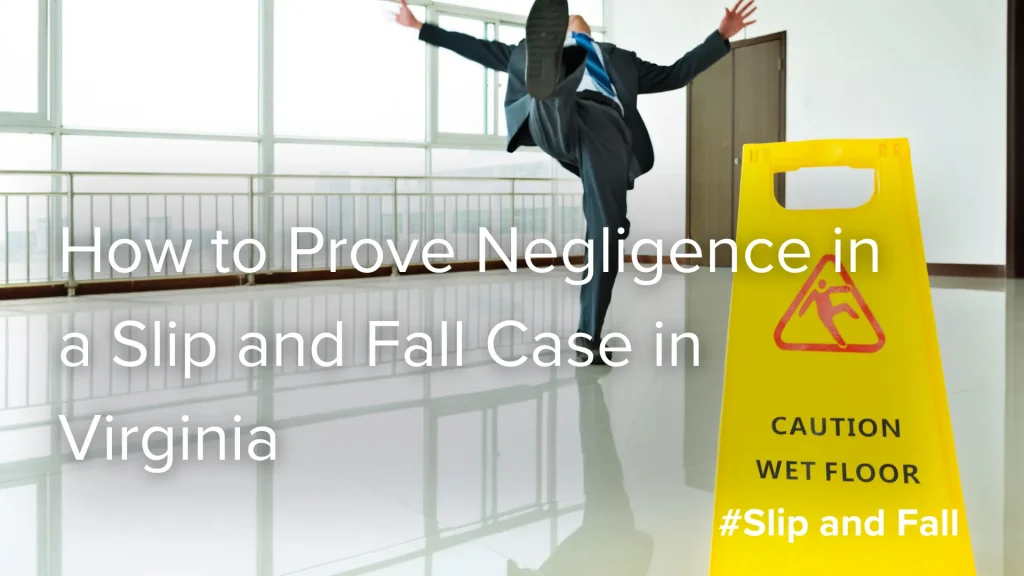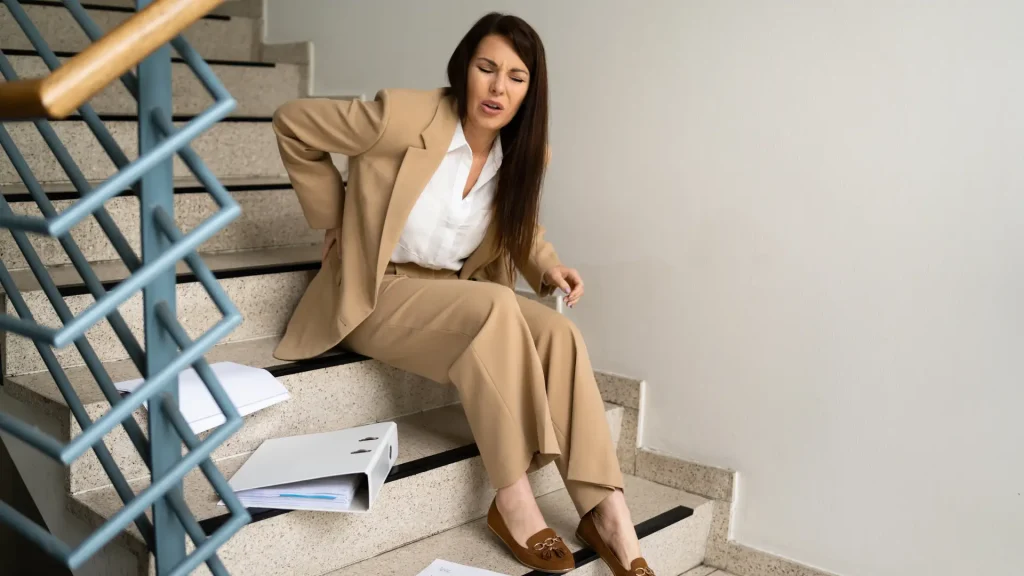Jun 01, 2025 | CHASENBOSCOLO
 A serious slip-and-fall accident can change your life and cause significant pain and mental distress. However, proving your slip-and-fall case and recovering the money you need to cover your medical expenses and move forward with your life can be challenging.
A serious slip-and-fall accident can change your life and cause significant pain and mental distress. However, proving your slip-and-fall case and recovering the money you need to cover your medical expenses and move forward with your life can be challenging.
From day one, insurers and property owners will work against you to discredit or diminish your claim and deny responsibility. Getting the money you need means proving negligence and showing that unsafe property conditions caused the accident. Start advocating for yourself by learning how to build a case backed by evidence to support the claim that you deserve maximum compensation for your injuries.
What Is Negligence in a Slip and Fall Case?
According to the National Floor Safety Institute, falls are responsible for over 8 million emergency room visits annually and are the leading cause of ER visits. The numbers also suggest that slip-and-fall accidents represent one of the primary causes of lost days from work.
Virginia property owners are responsible for providing a safe environment for lawful guests and visitors, one reasonably free from hazards. When their failure to do so leads to an accident, a property owner may be legally responsible for compensating accident victims. The victim can demonstrate that the property owner is liable for their injuries. Negligent in their duty to provide a safe environment. Taking proper precautions to avoid slip and fall accidents, like cleaning spills promptly, using warning signs, and maintaining walkways.
Establishing negligence in a slip-and-fall case means establishing four key elements:
- Duty of care – Duty of care establishes that a property owner has a legal obligation to make their property reasonably safe and free from dangerous conditions for patrons and guests. Generally, duty of care means a property owner must periodically inspect their premises for hazardous conditions and address them or warn individuals of safety hazards to prevent accidents.
- Violation of duty of care – The property owner did not meet their duty of care to the patron or guest. That means showing that the owner or responsible party knew an unsafe condition existed on their property or should have reasonably known the condition existed and not taken appropriate steps to address it.
- Causation – It’s insufficient to show that the property owner failed to meet their obligations. Instead, a slip-and-fall accident victim must show that the duty of care violation directly caused the accident and resulting injuries.
- Damages – Finally, an accident victim must prove that they suffered measurable losses such as medical expenses, lost wages, and emotional distress due to the slip-and-fall accident and resulting injuries.
Key Evidence That Helps Prove Negligence
Proving a property owner knew dangerous conditions existed and did not take appropriate actions to address those safety issues takes solid evidence. Property owners and insurers want to limit their liability as much as possible, potentially placing the blame for the accident on the shoulders of the victim. As a victim, you need to collect and preserve key evidence that supports your claim and shows negligence on the part of the property owner.
Evidence and slip hazard documentation that may be valuable to a slip-and-fall accident case can include:
- Accident report
- Photographs and videos of the scene
- Surveillance or security footage of the fall
- Witness statements
- Medical records
- The clothing or footwear the victim was wearing
Eventually, Evidence gathering is generally not at the top of people’s minds after someone suffers a frightening slip-and-fall accident, which is why seeking legal help after an accident is crucial. Valuable evidence can be lost or destroyed before an accident victim has the time or power to collect it, especially if they’ve suffered significant injuries. An attorney can immediately move to investigate the slip-and-fall accident and preserve evidence that helps prove negligence on the part of the property owner or other entity.
Another thing to consider is that property owners may be reluctant to turn over evidence, such as security or surveillance footage, to an accident victim. An attorney facilitates evidence collection and can use the legal system to compel property owners to preserve and turn over information that may help build an accident victim’s case.
Common Hazards That May Indicate Negligence
 Slip-and-fall accidents can lead to lifelong impairments. Statistics from the U.S. Centers for Disease Control and Prevention show that falls are the leading cause of traumatic brain injury in the United States. Additionally, while the list of what can cause a fall is extensive, the result tends to be the same. Painful and potentially devastating injuries can affect a slip-and-fall victim long-term.
Slip-and-fall accidents can lead to lifelong impairments. Statistics from the U.S. Centers for Disease Control and Prevention show that falls are the leading cause of traumatic brain injury in the United States. Additionally, while the list of what can cause a fall is extensive, the result tends to be the same. Painful and potentially devastating injuries can affect a slip-and-fall victim long-term.
A long list of hazardous conditions may indicate property owner negligence in slip-and-fall accident cases. Some of the most common dangers that can indicate negligence include:
- Wet or slippery floors
- Spills
- Freshly mopped or waxed floors without warning signs
- Icy or snowy conditions
- Uneven or damaged walking surfaces
- Cracked sidewalks or pavement
- Potholes
- Loose floorboards or tiles
- Torn carpets or rugs
- Broken or uneven steps
- Loose electrical cords or wires
- Boxes or merchandise left on the floor or blocking aisles
- Missing or broken handrails
- Loose stairs
Other conditions may indicate property owner negligence, like poor lighting or security measures, and unmarked hazards or steps. Factors that may affect a case include:
- The nature of the hazard
- The length of time it existed without intervention
- Whether the hazard was open or obvious
- The victim’s actions before the fall
Virginia Slip-and-Fall Accident Attorney Help Prove You.
The Virginia slip-and-fall accident lawyers at CHASENBOSCOLO know what it takes to fight for accident victims. We are a team of dedicated trial lawyers who care about what’s best for you. We will work hard to help you devise effective legal strategies to get you the money you deserve for your injuries. Our goal is to hold negligent property owners accountable for their actions.
We understand that every case is different and want to learn more about you and your unique circumstances. Contact our Virginia office now or call us at (301) 220-0050 to arrange a free consultation. We offer a no-fee guarantee and will not collect fees unless we recover your compensation.






